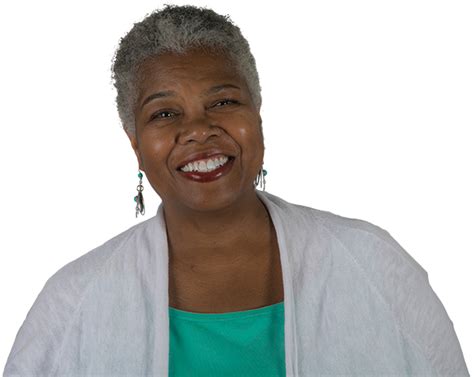A Quote by Sol Stern
To my knowledge, no progressive educator has ever suggested that children didn't need to know the "mere facts" about the contributions of African Americans to our society.
Related Quotes
I don't like realism. We already know the real facts about li[fe], most of the basic facts. I'm not interested in repeating what we already know. We know about sex, about violence, about murder, about war. All these things, by the time we're 18, we're up to here. From there on we need interpreters. We need poets. We need philosophers. We need theologians, who take the same basic facts and work with them and help us make do with those facts. Facts alone are not enough. It's interpretation.
We have heard of a Society for the Diffusion of Useful Knowledge. It is said that knowledge is power, and the like. Methinks there is equal need of a Society for the Diffusion of Useful Ignorance, what we will call Beautiful Knowledge, a knowledge useful in a higher sense: for what is most of our boasted so-called knowledge but a conceit that we know something, which robs us of the advantage of our actual ignorance? What we call knowledge is often our positive ignorance; ignorance our negative knowledge.
[Walt] Whitman and [humanist educator John] Dewey tried to substitute hope for knowledge. They wanted to put shared utopian dreams - dreams of an ideally decent and civilized society - in the place of knowledge of God's Will, Moral Law, the Laws of History, or the Facts of Science.... As long as we have a functioning political left, we still have a chance to achieve our country, to make it the country of Whitman's and Dewey's dreams.
African American children are significantly more likely to be obese than are white children. Nearly half of African American children will develop diabetes at some point in their lives. People, that's half of our children. ...We can build our kids the best schools on earth, but if they don't have the basic nutrition they need to concentrate, they're still going to have a challenge learning.
I think what is being pointed out by African-Americans is that from slavery forward they have been living in a supposed democracy which treats them as less than other citizens, less than whites in the society. And I think that pointing out that there are structures of discrimination in the society, deeply rooted racist structures, that segregate housing, that send black children to ill-equipped schools, that discriminate in the workplace - these are truths about our society that must be faced.
I really see no harm which can come of giving our children a little knowledge of physiology. ... The instruction must be real, based upon observation, eked out by good explanatory diagrams and models, and conveyed by a teacher whose own knowledge has been acquired by a study of the facts; and not the mere catechismal parrot-work which too often usurps the place of elementary teaching.
Plato--who may have understood better what forms the mind of man than do some of our contemporaries who want their children exposed only to "real" people and everyday events--knew what intellectual experience made for true humanity. He suggested that the future citizens of his ideal republic begin their literary education with the telling of myths, rather than with mere facts or so-called rational teachings.
All knowledge that is about human society, and not about the natural world, is historical knowledge, and therefore rests upon judgment and interpretation. This is not to say that facts or data are nonexistent, but that facts get their importance from what is made of them in interpretation… for interpretations depend very much on who the interpreter is, who he or she is addressing, what his or her purpose is, at what historical moment the interpretation takes place.


































